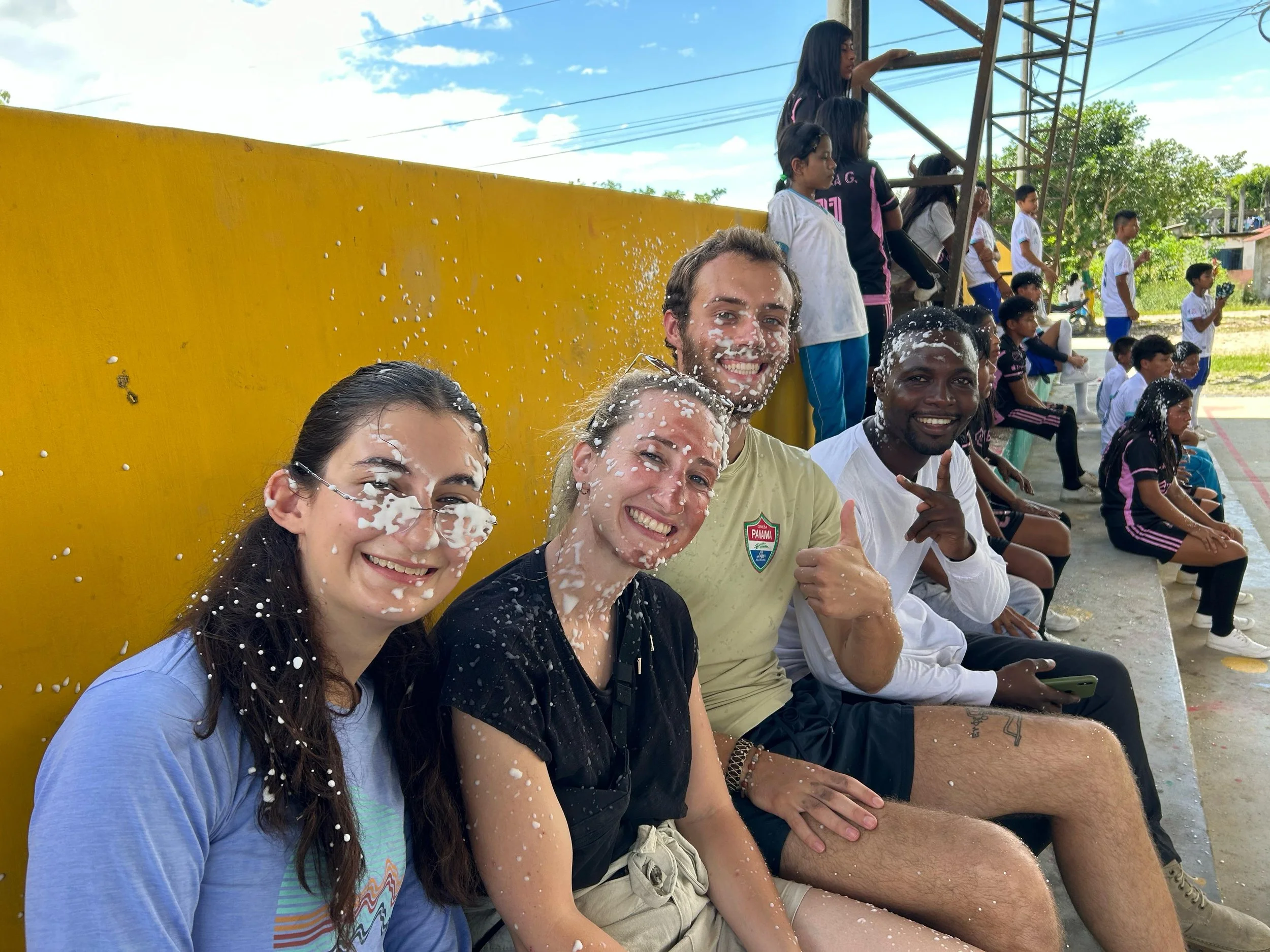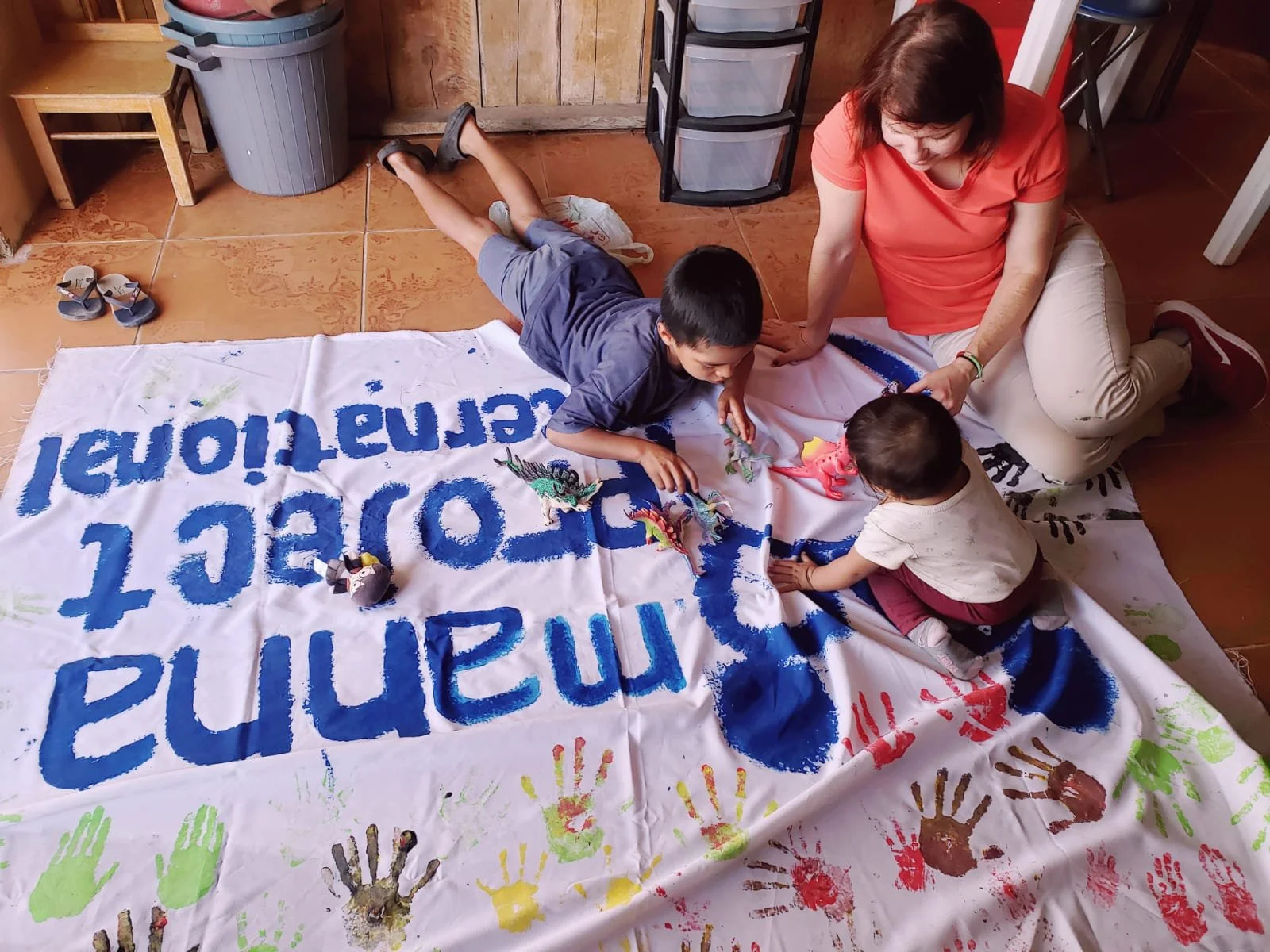1.
The Mountains
Although
some people probably know that Ecuador is quite mountainous, it is impossible
to image or visualize the incredible landscape of this country. Unfortunately
pictures cannot do the mountains of Ecuador justice but it seems like
everywhere we look could be a post card.
2. The Fruit
Born
and raised in the USA, I’m used to organic, fresh fruit being expensive and
hard to find, especially when what you’re looking for is out of season. It’s
the opposite here in Ecuador. While a box of brand name Cornflakes can be
almost four dollars, a huge selection of fresh fruit can be bought almost anywhere.
3. The Seasons (or lack of?)
Instead
of Summer, Fall, Winter and Spring, Ecuador’s seasons seemed to be
distinguished as the rainy season and the non-rainy season. And while we’re all
missing Autumn, the rainy season will hopefully still provide an excuse to wear large
sweaters and drink coffee.
4. Architecture
An orange
house, a pink house, a bright teal house...this is the common view during our daily commute. The beautiful architecture, historical styles and brilliant colors of
Ecuadorian towns still amaze me daily.
 This past weekend the program directors took off for our first work retreat. We went to Baños, only a few hours away but a whole new world. Baños is one of the most incredible places I have ever been. The town houses one of the most active volcanoes in the world; Tungurahua. Surrounding the incredible "mother" Tungurahua is lush rolling hills, mountains of all sizes and more greenery than I've ever seen.
This past weekend the program directors took off for our first work retreat. We went to Baños, only a few hours away but a whole new world. Baños is one of the most incredible places I have ever been. The town houses one of the most active volcanoes in the world; Tungurahua. Surrounding the incredible "mother" Tungurahua is lush rolling hills, mountains of all sizes and more greenery than I've ever seen.  During the retreat we biked "la ruta de las cascadas," or the waterfall route. Along this route we saw mountainous scenery and a total of 4 waterfalls. It was so much fun (despite the cold rain we were caught in for the first hour) and I can't imagine enjoying it more with anyone other than my Mannamily (Manna family). The retreat wasn't all fun and vacation time, we also got down to business. Luckily, the work part of the retreat was discussions on culture and leadership; two things we are all passionate about. It was great to have such in-depth conversation with the other program directors about things we care about. The discussions deepened our relationship and made us feel more united in our motivation and hopes for our time in Ecuador. The morning before returning to Quito, we trekked up to "la casa del árbol," a famous tree swing on a mountain side.
During the retreat we biked "la ruta de las cascadas," or the waterfall route. Along this route we saw mountainous scenery and a total of 4 waterfalls. It was so much fun (despite the cold rain we were caught in for the first hour) and I can't imagine enjoying it more with anyone other than my Mannamily (Manna family). The retreat wasn't all fun and vacation time, we also got down to business. Luckily, the work part of the retreat was discussions on culture and leadership; two things we are all passionate about. It was great to have such in-depth conversation with the other program directors about things we care about. The discussions deepened our relationship and made us feel more united in our motivation and hopes for our time in Ecuador. The morning before returning to Quito, we trekked up to "la casa del árbol," a famous tree swing on a mountain side. We each took our turn swinging on the wreck-less, haphazard mountain side swing; laughing wildy and taking in deep breaths of mountain air. It's hard to explain, but that tree swing touched each of us profoundly. Whether it was the danger, the beauty or the combination of the two; it was one of the most wonderful feelings I've ever felt. I'm so glad that I left Baños closer to my friends and closer to nature and I can't wait to return.
We each took our turn swinging on the wreck-less, haphazard mountain side swing; laughing wildy and taking in deep breaths of mountain air. It's hard to explain, but that tree swing touched each of us profoundly. Whether it was the danger, the beauty or the combination of the two; it was one of the most wonderful feelings I've ever felt. I'm so glad that I left Baños closer to my friends and closer to nature and I can't wait to return.












